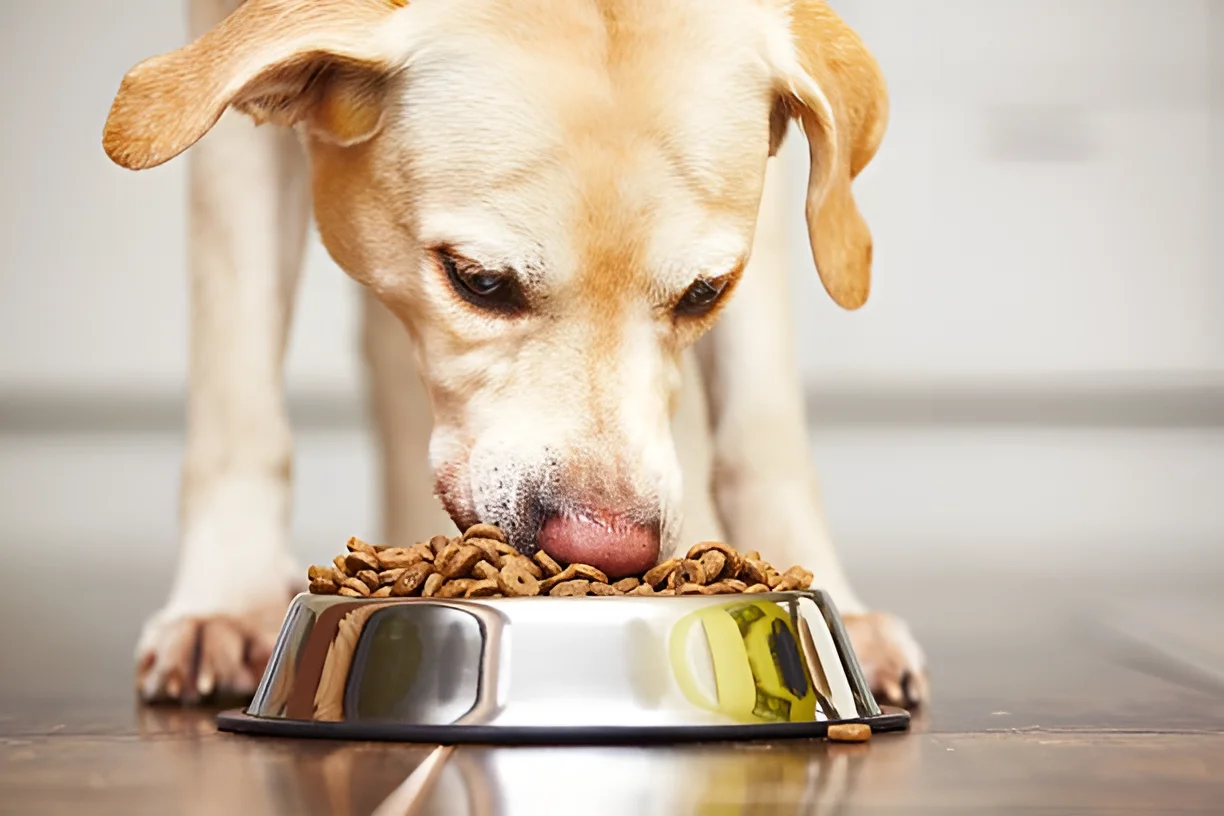Yes, dogs need some salt in their diet, but it must be in the right amount to ensure their health and well-being. Understanding the role of salt and how to incorporate it safely into homemade dog food is crucial for your pet’s nutrition.
The Role of Salt in a Dog’s Diet
Salt, or sodium chloride, is an essential mineral that plays a vital role in various bodily functions. While too much salt can be harmful, the right amount is necessary for maintaining your dog’s health.
1. Essential Functions of Salt
Salt is crucial for several physiological processes in dogs.
- Fluid Balance: Sodium helps regulate the balance of fluids in the body, ensuring that cells function properly.
- Nerve Function: Sodium ions are essential for nerve impulse transmission, which is critical for muscle contractions and overall nervous system function.
- Digestive Health: Chloride, a component of salt, is necessary for the production of hydrochloric acid in the stomach, aiding in digestion.
2. Daily Sodium Requirements
The daily sodium requirement for dogs varies based on their size, age, and activity level.
- General Guidelines: The minimum daily sodium intake for dogs is around 13mg/kg of body weight, which translates to about 0.2g/1000kcal.
- Puppies and Active Dogs: Puppies, lactating, and pregnant dogs, as well as very active breeds, may require higher amounts of sodium.
Benefits of Adding Salt to Homemade Dog Food
Adding the right amount of salt to homemade dog food can provide several benefits, ensuring your dog receives a balanced diet.
1. Balanced Nutrition
Including salt in homemade dog food helps achieve a balanced diet, which is essential for your dog’s overall health.
- Nutrient Absorption: Salt aids in the absorption of various nutrients, ensuring your dog gets the most out of their food.
- Electrolyte Balance: Maintaining the right balance of electrolytes, including sodium, is crucial for preventing dehydration and supporting bodily functions.
2. Improved Palatability
Salt can enhance the flavor of homemade dog food, making it more appealing to picky eaters.
- Taste Enhancement: A small amount of salt can improve the taste of food, encouraging dogs to eat their meals and ensuring they receive the necessary nutrients.
Risks of Excessive Salt Intake
While salt is necessary, excessive intake can lead to serious health issues. It’s important to understand the risks and monitor your dog’s salt consumption.
1. Salt Toxicity
Salt toxicity, or hypernatremia, occurs when a dog consumes too much salt and cannot rehydrate adequately.
- Symptoms: Symptoms of salt toxicity include vomiting, diarrhea, excessive thirst, frequent urination, muscle tremors, seizures, and even death in severe cases.
- Lethal Dose: The oral lethal dose of salt in dogs is approximately 2g per pound of body weight.
2. Health Conditions
Certain health conditions can be exacerbated by high salt intake.
- Kidney Disease: Dogs with impaired kidney function should avoid high salt intake, as it can worsen their condition.
- Heart Disease: Excessive salt can increase blood pressure and strain the heart, particularly in dogs with pre-existing heart conditions.
- Liver Disease: High sodium levels can lead to fluid buildup in the abdomen, complicating liver disease.
How to Safely Add Salt to Homemade Dog Food
To ensure your dog gets the right amount of salt, it’s important to follow guidelines and consult with your veterinarian.
1. Recommended Amounts
Follow recommended guidelines for adding salt to homemade dog food to ensure a balanced diet.
- General Recommendation: A safe amount of salt for homemade dog food is around 0.3% of the total diet.
- Measurement: This translates to approximately 0.25g of salt per 100g of food, or 1.5g of salt per 1000kcal.
2. Consulting a Veterinarian
Always consult with your veterinarian before making any changes to your dog’s diet, especially if they have health conditions.
- Personalized Advice: Your veterinarian can provide personalized advice based on your dog’s specific needs and health status.
- Regular Check-Ups: Regular veterinary check-ups can help monitor your dog’s health and ensure their diet remains balanced.
Alternatives to Adding Salt
If you’re concerned about adding salt to your dog’s homemade food, there are alternatives that can help meet their sodium needs.
1. Natural Sources of Sodium
Incorporate natural sources of sodium into your dog’s diet to provide the necessary minerals without adding table salt.
- Meat and Fish: Fresh meats and fish naturally contain sodium and can help meet your dog’s needs.
- Vegetables: Some vegetables, such as carrots and celery, also contain small amounts of sodium.
2. Commercial Supplements
Consider using commercial supplements designed to provide balanced nutrition for dogs.
- Balanced Formulas: These supplements are formulated to provide the right balance of vitamins and minerals, including sodium.
- Ease of Use: Supplements can be easily added to homemade food to ensure your dog receives all necessary nutrients.
Conclusion
Yes, dogs need some salt in their diet, but it must be in the right amount to ensure their health and well-being. Adding the right amount of salt to homemade dog food can provide essential nutrients and improve palatability. However, it’s important to avoid excessive salt intake and consult with your veterinarian to ensure a balanced diet. By following these guidelines, you can provide your dog with nutritious and delicious homemade meals.
The photo featured below the post headline is Credit: Chalabala/istockphoto
I hope you find this post helpful and informative. If Yes’ feel free to share it with your friends!
Frequently Asked Questions
How much salt should I add to homemade dog food?
A safe amount of salt for homemade dog food is around 0.3% of the total diet, which translates to approximately 0.25g of salt per 100g of food.
Can too much salt harm my dog?
Yes, excessive salt intake can lead to salt toxicity, causing symptoms such as vomiting, diarrhea, excessive thirst, and even seizures.
Are there natural sources of sodium for dogs?
Yes, fresh meats, fish, and some vegetables naturally contain sodium and can help meet your dog’s needs.
Should I consult a veterinarian before adding salt to my dog’s food?
Yes, always consult with your veterinarian before making any changes to your dog’s diet, especially if they have health conditions.
Can I use commercial supplements instead of adding salt?
Yes, commercial supplements designed for dogs can provide balanced nutrition, including necessary sodium, and can be easily added to homemade food.









